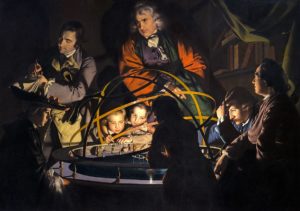 Living In Rome
Living In Rome
While we’ve discussed the similarities between the Greeks and the Romans, it’s also necessary to understand their differences. Because in may ways they were very different.
The first area of difference, and certainly the most important, was how they thought of themselves. Certainly both groups had a high level of civilizational confidence. That is, they believed that their ways were far better than the old ways or even the ways of anyone of their time. They were not ashamed of their ways, as so many modern societies are. But how these two groups envisioned their greatness differed.
The Greeks believed in their genius; that thought and cleverness had brought them to greatness. The Romans, on the other hand, believed that their unbreakable determination had brought them to greatness. Then, once it was established, they believed in the system that embodied their unbreakable will.
The Roman Way
Step by step, the people who became the Romans put together legends and stories that became a central foundation for their civilization. This foundation held very strongly from about 500 BC through about 150 BC. But even after that, and while Rome became a very different thing than what it had been, people still held to the old foundation, so much so that the elites of the Roman state had to make a good show of supporting it.
The mos maiorum – the way of the ancients – was an unwritten set of behaviors that made what the Roman people did, and especially what the state did, right or wrong. If you could show that you were following the way of the ancients, it gave your idea legitimacy. And it gave the Roman state legitimacy.
This concept of legitimacy is one that appears all through human civilizations. All hierarchical institutions: governments especially, need to be seen as legitimate; it’s essential for their very existence. If people saw them as no more special than a company providing services, they wouldn’t allow that government to take their money and tell them how to behave.
The way of the ancestors, for the Romans, involved the sovereignty of the people (that the people self-ruled; that they had replaced the king), thrift, sound judgment, personal virtue, seriousness, and holding to one’s principles no matter what.
The Roman way held the small and virtuous family as the central building-block of their civilization, and they made an offer to these people that went more or less like this:
Work the land, fight for your country, go back to working the land. Expand your holdings, make Rome wealthier, your family will profit thereby.
If you owned property, you were a citizen, you had rights, and you served in the army when needed. And as we noted in Lesson 6, these people were strongly committed to ruling themselves, and not to be dominated by kings.
As Rome began, the determination of what was virtuous was made by their priests (who happened to be from the richest and oldest families), according to secret processes and records. At this time, as you might guess, the bulk of the people – the non-elite workers, craftsmen and so on – got an unfair deal from the rich and old families who controlled things, and who colluded with each other. At that point the non-elite people of Rome made demands.
Twice, in our records, starting at 494 BC, these people (called plebeians or plebs) rejected the deal they were getting – rejected the legitimacy of their arrangements – and walked away to a nearby hill; they refused to work or fight until they were given a better deal. The elites soon backed down and said they’d do better, and so the plebs returned and went back to work.
A few years later the elites changed their mind and reneged on their deal, and so the people simply walked away again. Finally they got their better deal in a stable form.
Just a few years after, they demanded a standard of conduct that was comprehensible. And so, after the usual political delays, a set of comprehensible laws were created and placed upon twelve tables (large signs) at the forum in the center of Rome, for all to see.
Every Roman schoolboy was required to memorize these laws. They were clearly part of the mos maiorum, as were a number of ancient stories. They run to twelve or more pages, and are mainly reasonable but sometimes very cold and harsh by modern standards.
And while talking about law, it’s important to understand that Roman law began as a branch of religion. It regulated not just relations between man and man, but between men and gods. Crimes disturbed the relationships between men and the gods… between Rome and the gods. (Theirs was, as we mentioned earlier, a collective religion.) Over time lawyers replaced priests, but the original idea remained.
Also over time, the model of the educated Roman man developed. He was to be serious, loyal, tenacious and very practical. (One Roman writer dismissed the creations of the Greeks as “famous but useless.”) Such a man believed in hierarchy above liberty, in discipline and in running the world. He believed in structure and distrusted individuality.
The Romans didn’t even create a mythology of their own, but adopted theirs from others. Nor did they invent much music and art; more or less all of it was imported from Greece. After that, however, the Romans adapted literature and other arts.
There were exceptions to the model above, of course, but it held for quite some time, and supported the Roman state very directly.
**
Paul Rosenberg
freemansperspective.com
* * * * *
Please take a look at our subscription letters; they are unique. You can review the back issues here and order here.
